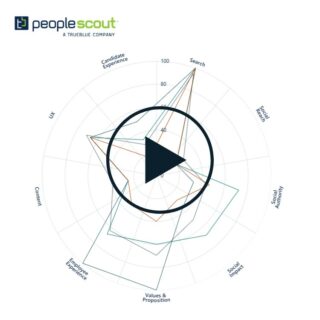By Robert Peasnell, Head of Growth, EMEA
We all love a pithy phrase. But whilst the ‘great resignation’ neatly captures what all employers are experiencing currently—1.3 million vacancies in the UK, 33% of employees allegedly planning to look for a new job in 2022 and 26% having already called recruiters or shared their CVs online—it explains the symptom, not the cause.
At PeopleScout, we’re seeing a fundamental shift happening in how people are reflecting on their lives and work as the COVID-19 pandemic endures into 2022. Conversations with employees across all ages and sectors indicate that people have developed a new sense of awareness and worth for themselves and the world around them. This is prompting them to demand more personal value and purpose from both life and work.
Changing Employee Expectations
In one study, 65% of participants said the pandemic had made them rethink the place that work should have in their life, and 56% said it made them want to contribute more to society.
Smart employers will acknowledge this truth and respond with a more human and purpose-driven employment offers.
Today’s REC/KPMG report on UK jobs, highlights the ongoing pressure on salaries with wage inflation at it’s highest for mover 20 plus years. However, rather than just paying staff more, employers need to develop a more human employer value proposition (EVP).
The era of the employment contract, in which a worker provided services purely in exchange for monetary compensation, is over. Employees want organisations to recognise their value and provide value back to them on a human level. Monetary compensation is important for surviving, but deeper relationships, a strong sense of community and purpose-driven work are essential to thriving.
This is the value that employees expect their employers to provide.
Is your EVP based on legacy conditions and thinking? Or does it deliver the personal value and sense of purpose demanded by a post-pandemic workforce?


